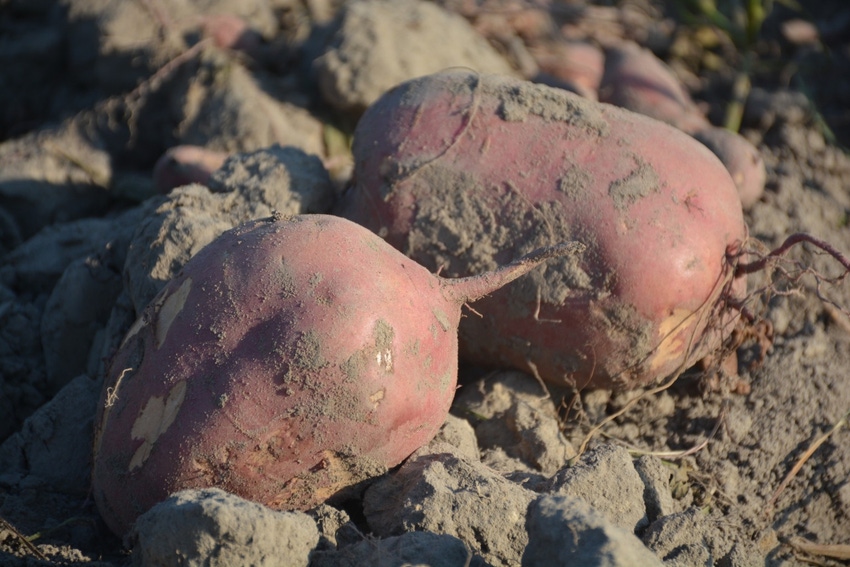
In many ways, sweet potatoes are the perfect 21st century food. They are well known for the nutrition they pack and are unique in that they appeal to both vegans and the meat and potatoes type. And North Carolina is No. 1 in sweet potato production.
USDA statistics show that North Carolina accounted for 70 percent of U.S. shipments in 2018. Sweet potatoes are grown mostly in the Coastal Plain region, where well-drained, sandy soils benefit the crop. North Carolina has ranked No. 1 in sweet potato production since 1971.
North Carolina sweet potatoes are also an important export. The state supplies 60 percent of all sweet potatoes consumed in Europe with the potential to grow this market even further. At home, more restaurants are offering sweet potatoes on their menus and this should grow as the desire for healthy food choices continues.
Of course, there are challenges. Top among them is the guava root knot nematode that was found in sweet potatoes in eight counties in North Carolina and prompted the North Carolina Department of Agriculture to issue an internal quarantine of the invasive pest in all 100 of the state’s counties in October of last year.
The quarantine, which remains in effect one year later, requires sweet potato seed roots to be inspected and certified free of guava root knot nematode before leaving the state. Sweet potato slips are required to have no soil or root on them before they can leave the state. The quarantine does not affect fresh sweet potatoes.
The good news is the state’s sweet potato industry has remained diligent in managing the guava root knot nematode because it knows success depends on ensuring a safe, high quality product. Assistant North Carolina Agriculture Commissioner Sandy Stewart stresses the regulations are key for maintaining a reputation as the No. 1 sweet potato state and expanding the market for the North Carolina farm product across the globe.
USDA pegs North Carolina sweet potato acreage at 93,000 acres this year. This should expand since sweet potatoes truly are the perfect 21st century food. At the Sweet Potato Field Day at the Cunningham Research Station in Kinston Oct. 3, Stewart urged the industry to keep up the good fight against the guava root knot nematode.
“I don’t know how many sweet potatoes we can grow. But if we can grow quality sweet potatoes, market quality sweet potatoes, expand those European markets and other foreign markets as well, it’s got to be lot bigger than 93,000 acres over time,” Stewart said.
About the Author(s)
You May Also Like






